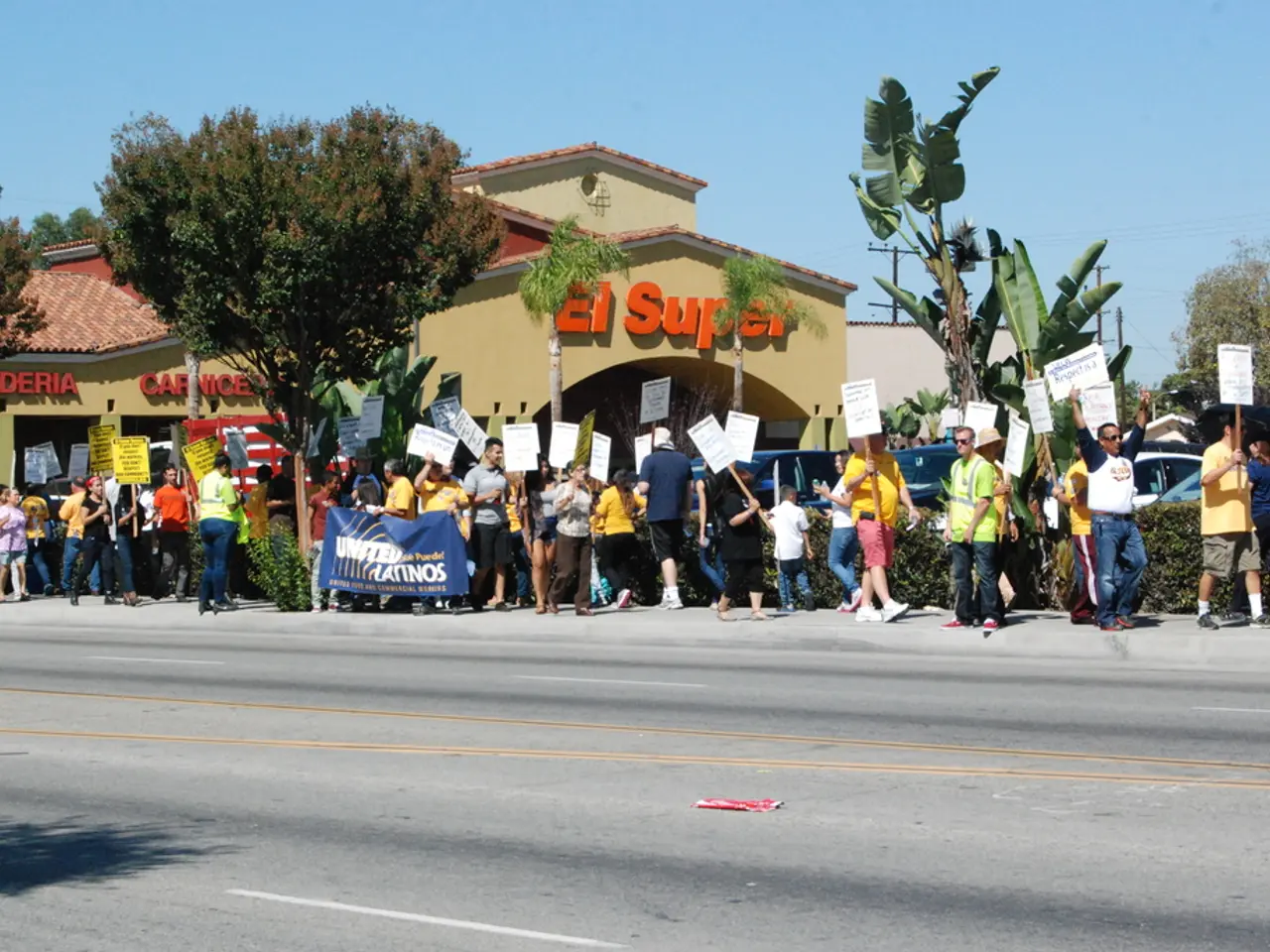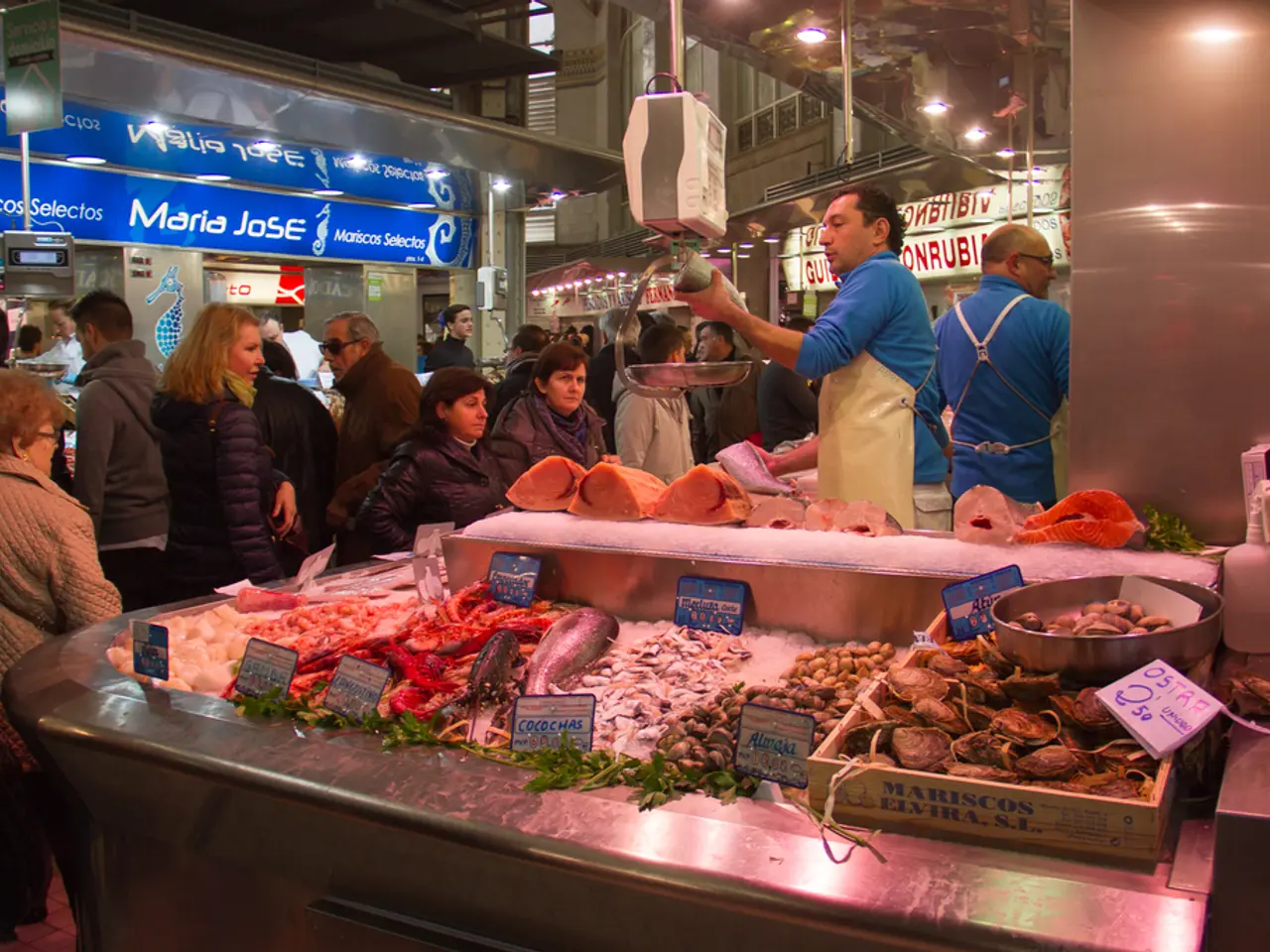Rising Influence: The Climb of Vlaams Belang Despite Lacking Power
Vlaams Belang's Electoral Victory in Flanders: A Shift Towards the Mainstream
In a surprising turn of events, Vlaams Belang (Flemish Interest, VB) has clinched the second-largest electoral victory in its history on June 9, 2024. The party, with roots in Flemish nationalist movements dating back to the interbellum, has managed to establish itself as a key player in Flanders' political landscape.
VB's success can be attributed to its strong nationalist and anti-immigration stances, which resonate with segments of the electorate concerned about identity and immigration issues. The party obtained almost 1 million votes, finishing first in 143 out of 300 communes, and even managed to win a mayorship and participate directly in governance for the first time.
One of the key factors behind VB's rise is its emphasis on Flemish identity and autonomy, tapping into regionalist sentiments in Flanders. The party has also aligned with voter concerns about immigration and integration policies, which have been central issues for many European far-right parties.
Another contributing factor is the perceived failure or alienation from mainstream parties, which often embrace more progressive or post-materialist values that some traditional voters reject. Voters view left-wing parties' emphasis on feminism, environmentalism, and multiculturalism as alienating, leading them to support parties like Vlaams Belang seen as defenders of traditional values.
VB's success fits within a continental pattern where far-right parties gain ground by focusing on immigration, national identity, and skepticism toward globalization. These parties often achieve electoral breakthroughs by blending radical rhetoric with more mainstream political organization and communication strategies.
In Flanders, the Flemish Greens have become the central political adversary of the far right. However, the analysis of party positions collected through a voting advice app shows that other parties have increasingly adopted the stances of Vlaams Belang on migration and integration.
News media often provide disproportionate coverage to the far right and its key issues, such as immigration, contributing to its normalization and successful rebranding. Journalists and political competitors in Flanders have adopted an "accommodative approach" towards Vlaams Belang, which has furthered its successful rebranding and normalization.
While economic factors like unemployment and social change also play roles in far-right appeal, Vlaams Belang’s electoral growth is particularly tied to identity politics and anti-immigration concerns popular in Flemish society. This normalization means the party has moved from the fringe towards a level of mainstream acceptance and competitive electoral performance.
Despite being convicted of racism by Belgian courts in 2004, Vlaams Belang has been able to join local coalitions in towns like Ranst, in the province of Antwerp, and even became the largest party in three out of five Flemish provinces. The party's nativist ideology, its opposition to globalisation, its support for far-reaching assimilationist policies, and its promise to stop the flow of migrants have helped establish Vlaams Belang as the key owner of the immigration issue in Flanders.
Understanding Vlaams Belang's electoral success requires an examination of its campaign strategies and demographic voter bases, which are yet to be fully analysed. However, insights into far-right support theories broadly apply here, including relative deprivation, ethnic competition, and rejection of progressive cultural policies.
In the wake of their electoral triumph, Vlaams Belang's success can be traced to both their strong stance on immigration and identity issues, and the perceived failure of mainstream parties to address the concerns of traditional voters. Moreover, the increasing alignment of other parties' positions on migration and integration mirrors the continental pattern observed across Europe, as far-right parties gain traction by focusing on these key issues.








